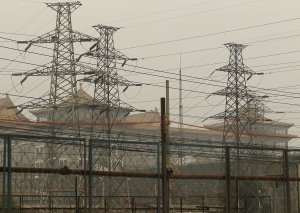Nov. 5 (UPI) — Earlier this month, the United States and the Republic of Korea reached an agreement on greater cooperation between the two nation’s civil nuclear energy industries.
On Nov. 1, the two nations reached a so-called “memorandum of understanding” on topics affecting nuclear exports and cooperation, according to a statement released from the U.S. Department of Energy on Monday.
In that statement, U.S. and Republic of Korea officials reaffirmed their mutual commitment to promoting peaceful nuclear energy while “upholding the highest standards of nonproliferation, safety, safeguards and security.
“Toward this end, the parties strengthened their administration of export controls on civil nuclear technology,” officials said in the statement.
Though most of today’s recent news about nuclear topics on the Korean peninsula seemingly involve North Korea’s expansion of its nuclear weaponry capabilities, the south’s use and promotion of nuclear energy for civil and peaceful needs has been noteworthy.
South Korea is one of the world’s most prominent nuclear-reliant nations, according to the World Nuclear Association, an international pro-nuclear organization that tracks such information. Twenty-six reactors provide about one-third of South Korea’s electricity, the organization says, adding that President Yoon Suk Yeol set a target for nuclear energy to provide a minimum of 30% of electricity to the nation by 2030.
Additionally and according to the International Trade Association, a private group that promotes U.S. exports, South Korea currently is seeking to transform its “energy-generation mix” by adopting an expanded use of nuclear power as a way to also increase the source of carbon free energy in its overall energy mix from the current 40% to 70.2% by 2038.
That seemed to be echoed in the release this week in which DOE officials said the commitments made by the United States and the ROK “will provide a springboard for the expansion of our bilateral work in combatting climate change, accelerating global energy transitions, and assuring critical supply chains while creating billions of dollars worth of new economic opportunities and the creation or maintenance of tens of thousands of manufacturing jobs for both of our industries.”
The memorandum will now face a final review by both U.S. and ROK officials.

COMMENTS
Please let us know if you're having issues with commenting.